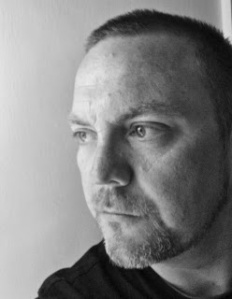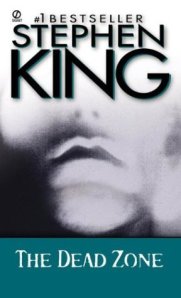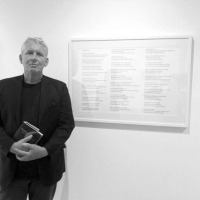Debut author profile: Michael Adams

Michael Adams, star of FRIDAY NIGHT FICTIONS, and author of The Last Girl
I must confess I didn’t know too much about YA until quite recently. I always had in my head that it was a closed genre, featuring vampires and werewolves and girls with ballgowns and insipid romance. But everyone makes mistakes. Reading more widely this year — and the YA community’s quick embrace of just_a_girl led me down this path — I realised that it’s an enormously diverse market with exactly the kind of narratives that excite me, a genre often caught in between the adult and teen worlds.
I’m always a sucker for coming-of-age-girl-as-outsider-awkward-moments-until-she-realises-everybody-is-like-that narratives. Blame the 80s and Molly Ringwald. When I was an adolescent, the idea of books for teens was just gaining ground. I devoured SE Hinton, Paul Zindel, Judy Blume, Robert Cormier. These writers tackled dark subjects, spoke of sex and drugs and religion (and all those things I’m still writing about), and empowered teens to fight for themselves.
Michael Adams’ The Last Girl is a strong addition to the genre, that also fights to be let out into literary fiction. Highlighted in the September edition of FRIDAY NIGHT FICTIONS, it demands close reading. While lead girl Danby confronts an apocalyptic vision of Sydney, where most of the inhabitants can read each other’s minds, it’s also about communities separated by high-density living, soaring property prices, environmental catastrophe, the legacy of stealing someone else’s land, and addiction to personal-technologies.
Michael knows how to cram in big ideas. His background as a film critic (editor for Empire — where he employed me to write on Bergman [bliss] — and even appearing on The Movie Show on SBS) serves him well here. The fiction is full of pop-culture references, sly humour, out-of-the-blue violence, and challenges to narrative conventions.
Danby is a memorable figure through the death and destruction around her, intuitive, strong, countering expectations to be led astray by wayward boys, dealing with challenges effectively with humour and courage. I’d like to meet her one day. Let’s hope she makes it to the end of the trilogy (The Last Girl is the first in a series). Knowing Michael, this isn’t entirely certain.
Here I talk to him about Stephen King, Sydney and the Blue Mountains on fire, and heroines that break free of conventions…
Do you remember the moment when you decided you wanted to be a writer?
Not the precise moment but it goes back as far as I can remember. As a six-year-old I’d write and illustrate little stapled books about soldiers and sharks and dinosaurs — sometimes all in the same story. By the time I was in my early teens I was trying to write novels. Then I got into journalism and creative writing took a backseat. It wasn’t until I’d tried my hand at screenwriting and non-fiction that I finally, finally, achieved the goal I’d set for myself when I was about 13. Oddly — or maybe not oddly — The Last Girl contains echoes of those adolescent efforts.
 What inspired you?
What inspired you?
The Last Girl came as a bit of a flash — at least in concept. In 2008 I was in New York and at dinner at a restaurant with my partner. We were having a great time talking to another couple who’d survived Hurricane Katrina. But at another table there was a couple who didn’t say a word to each other all night. At some point I wondered: what if they could read each other’s thoughts, hear everything that wasn’t being said. Then I wondered what it’d be like if the phenomenon spiralled out to encompass the city, the country, the world.
My book and yours share some common themes: teenage girls on the edge; a narrative that swings between Sydney and the Blue Mountains (on the train tracks); the questioning of digital cultures and their effects on psychology and relationships. Why did you decide to pursue these ideas in a YA novel?
Initially I thought I was writing an adult book about a young adult character. It wasn’t until I’d sent the book to Allen & Unwin that it was explained it was a YA. The definition was that YA focuses on young characters who have to make their own decisions in the absence of adult authority. That pretty much summed up Danby’s situation in The Last Girl. But I’m not sure about the YA label because it wasn’t used to describe similar books when I was growing up. The Catcher In The Rye and Lord Of The Flies spring to mind. Back then they were literature — now they’re YA. And then there’s the US statistic that says 84 per cent of YA is purchased by people over 18. I guess what’s important is that it’s a good story well told and in a voice authentic to the age of the character.
You’ve written extensively on film (as a reviewer and non-fiction writer). To what extent did cinema, and in particular B-grade films, influence your narrative?
I wanted the story to grab readers by the throat, take them to a cliffhanger and then tease them with backstory that’d become important throughout the trilogy before plunging back into an ever-escalating series of disasters for poor Danby. But I wanted to throw her and readers constant curveballs so it’d be difficult to predict where the story was heading. So the movies I kinda had in mind were those that’ve had that effect on me: Se7en, Fight Club, Zodiac, Psycho, The Usual Suspects, Night Of The Living Dead are a few that spring to mind. I also put as much black humour into the book as possible and in that the touchstones are films like Dr Strangelove, Bride Of Frankenstein and Repo Man.

The biggest influence on The Last Girl? Breaking Bad…
But the biggest influence wasn’t film — it was Breaking Bad. I watched the entire series twice and really tried to understand how Vince Gilligan created an emotionally charged character-driven suspense thriller that was so dense, complex and funny — while also layering in all of his narrative callbacks, in-jokes and Easter Eggs. There’s a lot of that kind of thinking in The Last Girl. Seemingly throwaway details become pivotal to survival. References to pop culture echo the themes. There’s a reason Danby’s dad orders a plate of shrimp and a Miller. Google it and you’ll see why.
The Last Girl is the first in a series. Did the publisher commission a number of books at once? How hard is it as a writer to plan out a series?
Yes, A&U bought the trilogy. By that stage I had a solid first draft of The Last Girl and about 20,000 words of the sequel. Now book two, The Last Shot, is at the final proofreading stages and I’ve got three months to finish the first draft of The Last Place, which will wrap things up. When I started The Last Girl, I was pretty much making it up as I went along. The ending I eventually decided on and worked towards would’ve left a lot unresolved. I wanted to know what came next. The fun — and tough — thing is to ensure continuity while you juggle drafts. But I’ve really enjoyed playing with the world — or end of the world — and seeing how the puzzle pieces actually do fit together. Mostly it’s been an organic process. But I’ve also worked to ensure the books don’t repeat scenes or scenarios. I hate sequels that’re just a reheat. So I see the series as one story, which also means that I need the end of book three to be bigger and more powerful than what’s come before. I want it to be my Toy Story 3 and not The Godfather Part III.
Your novel is playful and toys with genre conventions: the romantic lead; the heroine as victim/survivor; futuristic horror; the quest. Was this always something you had in mind when you started writing, or did it evolve as you went? How did this go when you were trying to get the book published? Was there pressure to make it one thing or another?
There was a lot I didn’t want my book to be. Passive heroine? Fuck that. Instant love between characters? No thanks. Scared suburban types who suddenly become fearless warriors? Uh-uh. I hate reading or watching stories in which you spend your time shaking your head at bad character decisions and/or illogical scenarios. So as much as possible I wanted Danby’s nightmare to feel real, to be blow-by-blow. Yay, she’s made it to the car! But can she drive? Can you feasibly escape a burning city on clogged roads? And if not, then what? I wanted characters who haven’t got all the answers. I tried to imagine myself in her shoes and in doing that painted Danby into some seemingly inescapable corners. A few of these took months to figure out. And that meant walking the actual locations until the “A-ha!” moment struck. Writing like that intrinsically bends genre expectations because we’re so often fed the same-old people and situations. Tough guys walk in slow-motion from the explosion without looking around? Stupid. How about sensibly shit-scared guys run but one can’t help looking back and gets flash-blinded while another’s cut in half by shrapnel and they all end up concussed by the shock wave that shatters every window for five blocks? By doing the latter you’re being logical and realistic but it’s also bleakly funny and subversive because it’s not what we’re used to seeing. As for how A&U reacted, they were brilliant. I was never asked to make it anything other than what I’d envisaged. The cuts and changes suggested were more to do with me overwriting, paying too much attention to secondary scenes or wandering away from the character voice.
You live in the Blue Mountains (I used to as well). Your book deals with catastrophic events, including, it seems, a whole city and mountain on fire. How did it feel when the recent Springwood fires were happening (after the book had been published)? Did it feel like life imitating art in some hellish way?
It was freaky because a few scenes, particularly smoke blanketing Parramatta and Silverwater, were exactly as I’d imagined them. I got a few messages from people saying, “Whoa, dude, that’s spooky.” But we were too busy packing up our and getting out of Katoomba to think about it too much. I did get asked by a big newspaper if I’d comment on the book’s similarities to the events but I declined because I thought it disrespectful to trivialise an ongoing situation threatening people’s lives and homes. Writer turns down publicity: film at 11!
Is there a writer community in the Blue Mountains? Can you survive being a writer up there, or do you still commute to Sydney for a day job?
There are a lot of writers in the Blue Mountains but I work a day job in Sydney so I haven’t had much time to explore the community. Couldn’t even go to the SFF events they had last year. Sad face. But the dream is to do exactly that: hang out up there and write. But for the foreseeable future I’ll be commuting to the office gig — and freelancing my butt off to supplement those wages. It’s all freaking glamour, me tells ya.
What is the most important thing you’ve learned in the process of writing your first novel, that you wish you knew at the beginning?
I guess it’s something you learn and re-learn every time you pick up a pen or sit at the keyboard: you’ll think your first jottings are amazing and you’ll be so very wrong. But they’re a start. And the next draft will be better … and then the next … and the next … and so on. But what’s equally important is to be ruthless, murder darlings in the nest before you get too attached. The first submitted draft ran to 111,000. The final book’s about 87,000. The 25,000 words or so that were cut were words I’d spent a long time writing and polishing. There was a lot in there that didn’t need to be but I was too close to it. By contrast, the first draft of The Last Shot was 80,000 — and it’s ended up at 93,000. So maybe I swung too far the other way. Perhaps the third book will be just right — but I doubt it!

Michael’s favourite book as a teen
What were your favourite books to read when you were a teenager?
I am indebted to Stephen King. I loved that supernatural events were happening in our very ordinary world and to ordinary people. The Stand and The Dead Zone were hugely influential. Later, at school, we did Lord Of The Flies, The Loved One, Nineteen Eighty Four, Shakespeare: and I loved all of them too. So a mixture of the high and lowbrow — but, like YA, I’m never sure exactly where the border lies.
Of course, the book screams film rights. If you could choose anyone (director, actors) to adapt and star in your film, who would they be?
David Fincher [Fight Club, Panic Room, Zodiac, The Social Network]. I love his obsessive attention to detail, the mood he creates. As for actors, I’m going home-grown. Eva Lazzaro as Danby. She’s the right age, she looks the part and she’s really talented. I thought she was the best thing about Tangle. Alex Russell as Jack. He was funny and charismatic in Chronicle and he had an edge to him. Nathan’s young and from Sri Lankan parents. I wonder if cricketer Ashton Agar can act?
Michael Adams’ The Last Girl was featured as part of FRIDAY NIGHT FICTIONS for September. You might also like to read an interview with August’s debut author, Nina Smith and YA author of Girl Defective, Simmone Howell.
WHAT ABOUT YOU? WHO ARE YOUR FAVOURITE YA AUTHORS? IS IT TRICKY TO DEFINE YA? OR HAVE YOU READ MICHAEL’S BOOK YET? LET US KNOW WHAT YOU THINK!

 An exclusive London hotel. Two shots, two men executed. Ten years earlier they helped convict a conman. Ash Todd of the Australian Federal Police assisted Scotland Yard in that case. Now The Yard has called him in again.
An exclusive London hotel. Two shots, two men executed. Ten years earlier they helped convict a conman. Ash Todd of the Australian Federal Police assisted Scotland Yard in that case. Now The Yard has called him in again. It all began as a fairytale…
It all began as a fairytale… This is a return to classic science fiction with a contemporary spin. While juggling a pacy storyline, filled with unexpected turns, David M Henley brings fresh ideas to the genre.
This is a return to classic science fiction with a contemporary spin. While juggling a pacy storyline, filled with unexpected turns, David M Henley brings fresh ideas to the genre.
 Stella moves from her wheatbelt family home to a run-down house in Cottesloe on WA’s coast. Her daughter, Miff, has died in a motorbike accident; her husband can’t bear to look at her; her father is in a nursing home; her brother is overseas. Her only company is her daughter’s dog.
Stella moves from her wheatbelt family home to a run-down house in Cottesloe on WA’s coast. Her daughter, Miff, has died in a motorbike accident; her husband can’t bear to look at her; her father is in a nursing home; her brother is overseas. Her only company is her daughter’s dog. Layla is only 14. She cruises online. She catches trains to meet strangers. Her mother, Margot, never suspects. Even when Layla brings a man into their home.
Layla is only 14. She cruises online. She catches trains to meet strangers. Her mother, Margot, never suspects. Even when Layla brings a man into their home. Darcy’s short story features in the Penguin anthology: Promise.
Darcy’s short story features in the Penguin anthology: Promise. Rachel Watts has just moved to Melbourne from the country, but the city is the last place she wants to be.
Rachel Watts has just moved to Melbourne from the country, but the city is the last place she wants to be. Ruth is widowed, her sons are grown, and she lives in an isolated beach house outside of town.
Ruth is widowed, her sons are grown, and she lives in an isolated beach house outside of town. Four women. Four lives unravelled. The truth will bind them forever.
Four women. Four lives unravelled. The truth will bind them forever. Cambodia, 1996, the long-running Khmer Rouge insurgency is fragmenting, competing factions of the coalition government scrambling to gain the upper hand. Missing in the chaos is businessman Charles Avery. Hired to find him is Vietnamese Australian ex-cop Max Quinlan.
Cambodia, 1996, the long-running Khmer Rouge insurgency is fragmenting, competing factions of the coalition government scrambling to gain the upper hand. Missing in the chaos is businessman Charles Avery. Hired to find him is Vietnamese Australian ex-cop Max Quinlan.